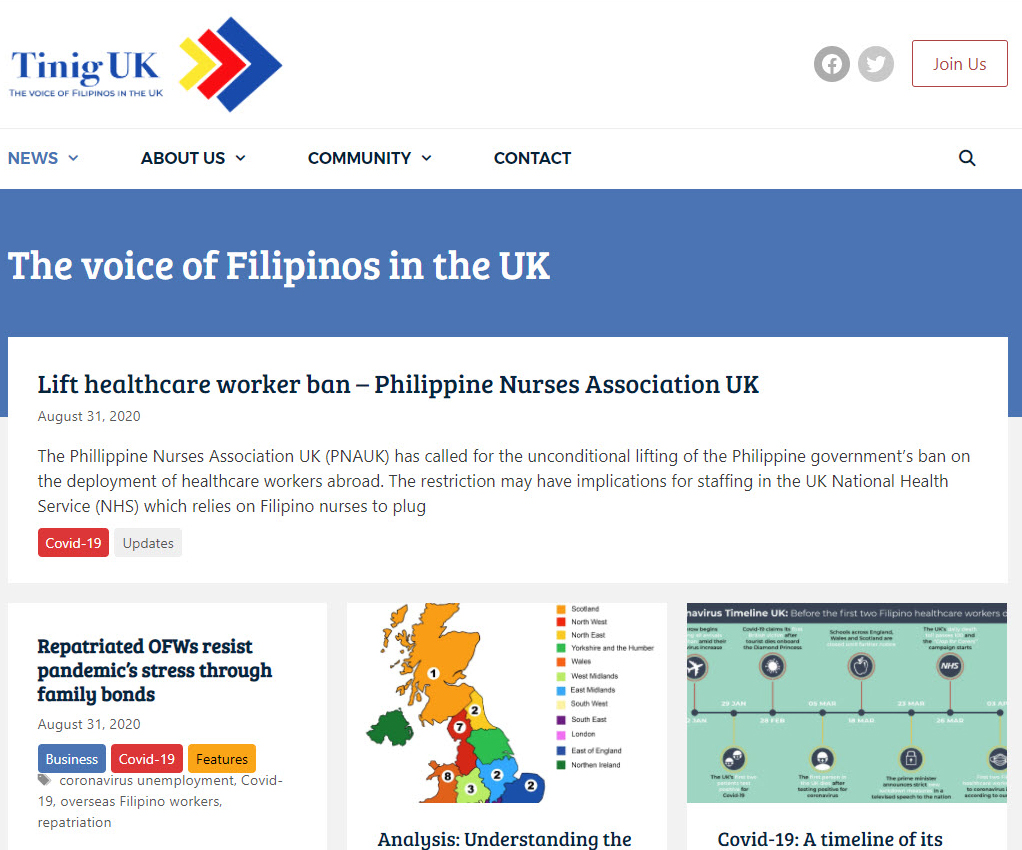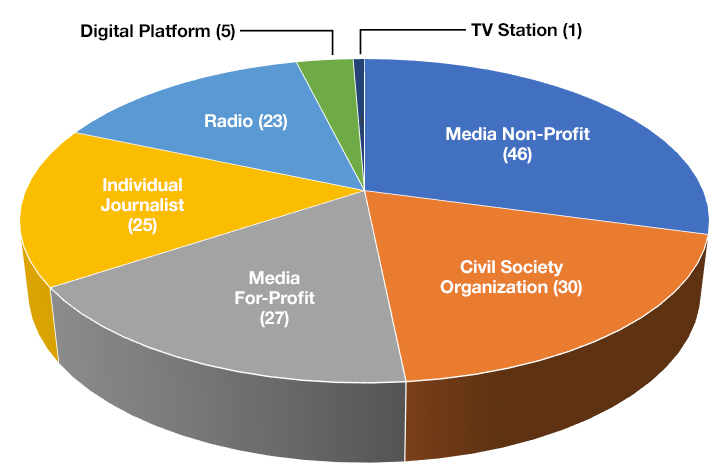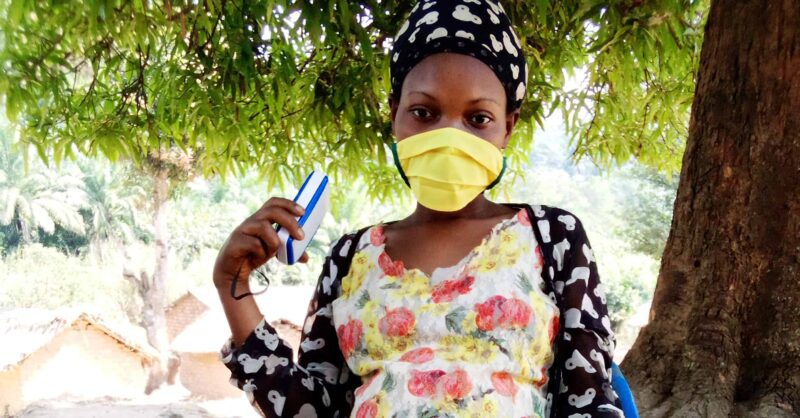At the onset of the COVID-19 pandemic, Internews launched a small-grant Rapid Response Fund, recognizing that trustworthy and accurate information can help save lives.
We saw that as our partners around the world scrambled to report on the coronavirus, they grappled with a bitter irony: demand for information soared, but their already-strained business models were further collapsing.
With support from Luminate and other donors who recognized the immense need, we made more than 180 grants to applicants in more than 40 countries. We’ve already seen the real impact and continued need for support of local-language, community-based information providers.
Need for culturally relevant content and organizational survival drove applications
Of the nearly 1,000 applications we received, most sought funding so they could provide content for marginalized communities who faced language barriers, stigma, or other obstacles to receiving information.
For example, Tinig focused on the Filipino community in the UK, a large number of whom work in health care, and a disproportionate number of whom have contracted and died from COVID-19. The UK Filipino community did not have an online news site dedicated to their interests and needs, until Tinig launched with Rapid Response funds.

Many others sought funding to survive as organizations and continue their operations. Like media all around the world, their ability to earn revenue was hit hard by the pandemic, while the need for their work was higher than ever.
Grantees including The Associacao Data Labe in Brazil used Rapid Response funds to sustain their operations and report data on COVID-19 in their community. As a non-profit media outlet located in Favela da Maré, one of the largest slums in Brazil, they serve 140,000 favela residents in one of the countries hardest-hit by COVID-19.
Read more stories and see video testimonials from our grantees and partners
Grants reached underserved communities
The response to the fund was overwhelming; with nearly 1000 applicants from 110 countries, we regret we couldn’t fund all the tremendous ideas. One reason demand was so high was that our grantees and applicants don’t have many other avenues for funding, particularly those who don’t come from established media outlets.
Successful Grantees:
Grantee applicants came from a wide range of organizations. Media non-profits and civil society organizations were awarded the highest number of grants for their work informing local communities.

Many small civil society organizations doing the work of community engagement and content creation don’t fit the criteria of larger journalism and production grants offered by traditional philanthropic organisations or government initiatives. Though they’re often the closest to their communities, providing trusted and localized information where it is most needed and most valuable, their work is overlooked because it doesn’t fit a traditional model of journalism.
“Since the coronavirus outbreak, we have applied to over thirty different organizations for funding, but the familiar response has been, ‘we regret,’” said C. Christian Zarweah, of grantee organization Give Them Hope in Liberia. “You have turned the story around.”
Give Them Hope is using their grant to share health information and education with women and girls in rural areas of Liberia via both loudspeakers in cars, driven to reach remote and underserved communities, and broadcasts on community radio stations.
Accessibility generates more, and more diverse, ideas
To ensure we could reach and respond to the most urgent and overlooked needs, we kept applications requirements simple. Applicants could submit in their own language, and information on grant criteria was available in Arabic, English, French, Russian and Spanish.
Applications were short Word documents, not online forms, so those in low-bandwidth areas could write their applications offline and submit once. Considering the real-time needs and capabilities of these applicants ensured we could reach a wide and diverse range of information providers.
The need remains urgent
Until there’s a vaccine, information is a key defense against COVID-19. Internews partners have mobilized, through the Rapid Response Fund, to provide trustworthy, accurate, and lifesaving information to communities around the world.
Beyond health information, the work of independent media and information providers is now more important than ever, as governments use the pandemic to justify suspending human rights, elections, and checks on their power.
In the coming months, we’ll continue to showcase and expand resources for journalists covering COVID-19, and continue our own projects reaching communities grappling with disinformation, lack of information, rumors and mistrust. Additionally, Internews’ “Rooted in Trust” project has an open call for applications through September 18, to support journalists and others in seven focus countries producing content or activities countering COVID-19 misinformation.
For more information about how you can support emergency funding to provide life-saving information, please reach out to [email protected] or donate online.
(Banner photo: RRF grantee Action for Vulnerable Women and Children in the Democratic Republic of Congo got information about COVID-19 prevention to rural communities through a network of women. Credit ASFEV)
